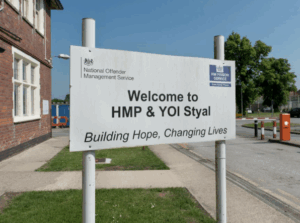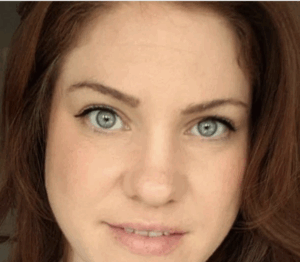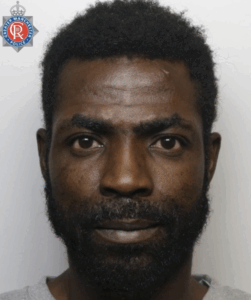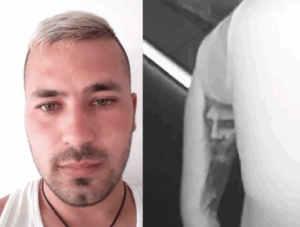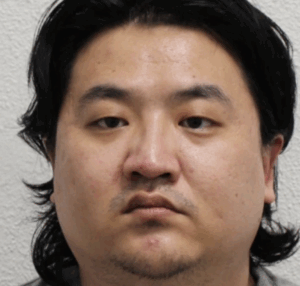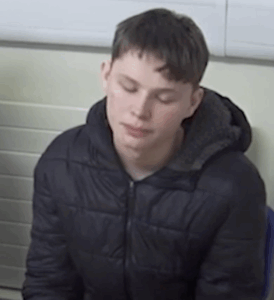Dele Alli’s football career has experienced setbacks in recent years, and now the former Tottenham player has revealed the hidden struggles behind the scenes.
From being a promising young talent, Alli’s performance on the field has declined over time. He achieved great success with Tottenham, making a name for himself in the Premier League after his £5 million transfer from MK Dons at the age of 19.
In the 2015/16 and 2016/17 seasons, Alli was named the PFA Young Player of the Year and helped Tottenham in their pursuit of the Premier League title.
He was outstanding, contributing to 19 goal involvements in 15/16 and 27 in 16/17. He continued to make significant contributions by being involved in 20 goals the following year, but faced a decline in the 2018/19 season.
After the departure of Mauricio Pochettino, Alli struggled under the management of Jose Mourinho, Nuno Espirito Santo, and Antonio Conte, before being transferred to Everton in the January 2022 transfer window.
However, things didn’t improve for the midfielder, as he faced reports of being excluded from the squad and missing training during his loan spell at Besiktas last season.
So, where did it all go wrong for him? In an emotional and heart-wrenching interview on The Overlap with Gary Neville, Alli opened up about his life, delving into his traumatic childhood experiences and his struggle with addiction to sleeping tablets that has impacted his career.
Neville, a former Manchester United player and current Sky Sports pundit, started off the interview by asking Alli if he was okay. Alli responded, “I think so. It’s a question I’ve been asked many times before, but this is the first time in a long while that I can genuinely say ‘yes’ and mean it. I’ve regained my passion for football.”
The interview, titled “Now is the Time to Talk,” was released on YouTube on Thursday morning and has already been viewed over 29,000 times. Both Neville and Alli were open and honest in discussing the player’s life before football and the challenges he has faced.
Alli shared, “Now is probably the right time to tell people what has been happening. It’s difficult to talk about because it’s still fresh, and it’s something I’ve kept hidden for a long time. I’ve been scared to talk about it, but I believe it’s the right thing to do.”
He explained that after returning from Turkey, he discovered that he needed surgery and was in a poor mental state. As a result, he decided to seek help by going to a modern rehab facility that focuses on mental health, addiction, and trauma.
Alli emphasized that it was a personal decision and that no one else could force him to go. He also expressed gratitude towards Everton for their support during this period.
Alli revealed that he has struggled with an addiction to sleeping tablets throughout his career and acknowledges that he has engaged in “stupid things.” He expressed his desire for others not to pity him but hopes that by opening up about his own struggles, he can encourage others to speak out about their own issues.
He said, “This has been going on for a long time without me realizing it. I used various methods to numb the feelings I had, such as drinking. I became addicted to sleeping tablets, and I believe it is not just me who faces this issue in football. By speaking out, I hope I can contribute to raising awareness. Sleeping tablets are given to players for a reason—to help them sleep. However, when you’re as broken as I am, they can have a negative impact because they only treat the symptoms temporarily. I abused them too much and never addressed the root of my problems, which were the traumas I experienced growing up.”
Alli also opened up about his childhood, sharing details he had not previously spoken about. In 2016, he changed the name on the back of his jersey from “Alli” to “Dele” because he felt disconnected from his surname.
He revealed that his mother, who struggled with alcoholism, gave him up for adoption. Alli discussed the hardships he faced, including incidents of molestation, selling drugs at a young age, and being hung off a bridge at eleven.
However, he also expressed gratitude for being adopted by a supportive and loving family.
Reflecting on his upbringing, Alli said, “It’s something I haven’t talked about much. There were several incidents that provide a glimpse into my experiences. At the age of six, I was molested by my mother’s friend who was frequently at our house due to my mother’s alcoholism.
At seven, I was sent to Africa to learn discipline and then returned. By the age of eight, I started smoking, and at eleven, I began selling drugs.
An older person advised me that authorities wouldn’t stop a kid riding a bike, so I carried drugs while playing football. I was hung off a bridge by a man from another neighborhood at twelve. Eventually, I was adopted by an incredible family, and if there is a higher power, they were it.”
Alli acknowledged that it was initially difficult for him to open up to his adoptive family and that he tried his best to be a well-behaved and obedient child. He expressed that he doesn’t want people to feel sorry for him but rather shared his story to raise awareness and empower others.
Alli’s honesty and vulnerability in sharing his struggles are commendable. He hopes that his story will inspire others to seek help and not suffer in silence. By shedding light on his own experiences, he aims to break the stigma surrounding mental health and addiction in the football community.
His journey towards recovery began when he sought professional help and underwent six weeks of rehabilitation. Alli expressed gratitude for the support he received from Everton during this challenging period in his life.
In the interview, Alli acknowledged that his career has faced setbacks, but he is determined to prove himself and showcase his true potential. He wants to reclaim his passion for football and demonstrate his abilities on the field.
The interview concludes with Alli’s message of resilience and strength. He emphasized that his past does not define him and that he has a bright future ahead. Alli hopes that by sharing his story, he can encourage others to reach out for help and find the strength to overcome their own struggles.
In a touching gesture, his former teammate Harry Kane sent a heartfelt message to Alli after his move to Everton. This support from his peers further reinforces the positive impact Alli’s story can have on others.
The interview with Gary Neville has already garnered significant attention, with thousands of views on YouTube.
Alli’s bravery in discussing his personal challenges serves as a reminder that mental health and addiction issues can affect anyone, regardless of their public image or success in their chosen field.
Dele Alli’s journey is ongoing, and as he continues to write his story, he is determined to overcome his past and forge a successful future both on and off the football pitch.
With his newfound passion and a commitment to his own well-being, Alli is poised to make a comeback and inspire others along the way.
If you or a loved one have experience any of the issues discussed above, you can reach out to the National Association for People Abused in Childhood, or to one of the alcohol rehabs such as Rehab Recovery.









